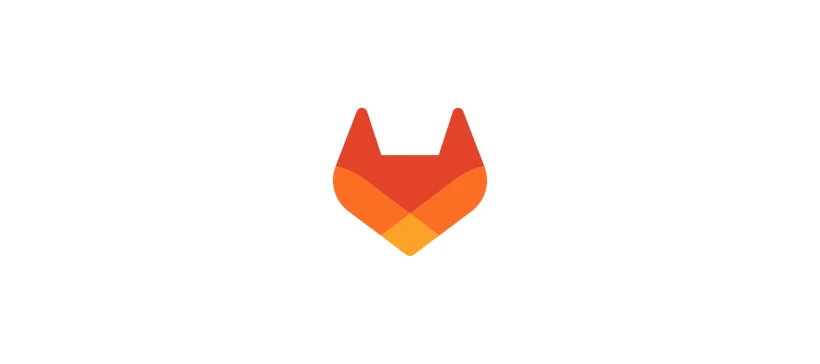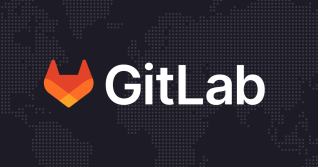GitLab 13.0 is coming on May 22, 2020 to GitLab.com. Along with the exciting new features, it also includes planned deprecations because it is this year's major version release. We try to minimize these changes, but some are important enough to warrant the change in functionality.
These changes will be going live on GitLab.com over the next few days, through our daily deployments, leading up to the official release of 13.0 on May 22nd. Keep reading to learn more about these important changes.
Auto DevOps default PostgreSQL chart version changing to 8.2.1
As part of updating Auto DevOps to support Kubernetes 1.16, the default PostgreSQL chart version is changing from 0.7.1 to 8.2.1.
To migrate your existing 0.7.1 PostgreSQL database to the newer 8.2.1-based database, follow the upgrade guide to backup your database, install the new version of PostgreSQL, and restore your database.
To remain on the old default, you will need to explicitly set the
AUTO_DEVOPS_POSTGRES_CHANNEL CI variable to 1.
Auto DevOps Auto Deploy default setting for deploymentApiVersion changing
Because several APIs were removed
in Kubernetes 1.16, the deploymentApiVersion setting is changing to a new default
of apps/v1 in GitLab 13.0.
If you are using Kubernetes 1.9 and below, you will need to upgrade your Kubernetes
cluster to get apps/v1 version support. For Auto DevOps,
GitLab requires Kubernetes 1.12+.
Auto DevOps and Secure Configuration templates are changing to rules instead of only/except
The use of only and except is
discouraged in favor of rules.
rules provides more verbose and expressive job execution logic that is less
complex to evaluate and understand.
Auto DevOps and Secure configuration templates
that use only and except are changing to rules. Users who have customized
job templates will need to transition as these two configuration options cannot
be used together. We have documentation available for help migrating your templates.
This change will affect the following job configuration templates:
Build.gitlab-ci.ymlTest.gitlab-ci.ymlDeploy.gitlab-ci.yml- Secure vendored
.gitlab-ci.ymltemplatesContainer-scanning.gitlab-ci.ymlDAST.gitlab-ci.ymlDependency-Scanning.gitlab-ci.ymlLicense-Management.gitlab-ci.ymlLicense-Scanning.gitlab-ci.ymlSAST.gitlab-ci.yml
Any customization to these templates using only and except must be changed to
the rules syntax. only/except can’t be used in
combination with rules since it’s intended to be replaced by that functionality.
Please see our troubleshooting doc
for guidance on transition your rules or pinning to the previous version.
We would love to hear more about these cases in this rules improvement issue.
Relevant issues:
Offset pagination limit of 50,000 for /projects endpoint
An offset-based pagination limit of 50,000 is being applied to the /projects
API endpoint on GitLab.com. Integrations that make API calls with offsets above
50,000 must switch to keyset-based pagination,
which will offer significantly improved response times and reduced load on the
GitLab server. Self-managed instances can customize the limit to a desired value.
To optimize performance, keyset-based pagination only offers ordering based on
project id. Use cases that require more flexible ordering options can continue
to use offset-based pagination, provided the offsets remain below the limit.
If use cases require flexible ordering options with deep offsets, we recommend
sorting client-side.
Removing GitLab Snippets content from search
As we continue to work towards version control for Snippets, we are making a change to search for Snippets in the UI and API that removes snippet Content from search results. Title and Description will still be accessible via search and API.
Introducing a new id field which replaces the deprecated cve field in the JSON common security report
As we add (and encourage third-party vendors to add) more security integrations,
we're working to improve our current JSON common report format. The primary field
cve property is confusing, as it does not contain CVE data and should therefore
be removed. We are introducing the id field, which is automatically calculated
for GitLab scanners and required for third-party partner scanners. The id field
will eventually replace cve as a unique identifier. Anyone leveraging the cve
property in security reports, with custom scripts or as an integrator into our
Secure features, will eventually need to stop using the cve property and instead
should start using the new id property. Please be aware that today id and
cve are both required fields.
- Container Scanning - Reports JSON format
- Dependency Scanning - Reports JSON format
- Static Application Security Testing (SAST) - Reports JSON format
Removal of token attribute in Runner's details API
We are removing the token attribute from the Runners API endpoint that gets details
of a Runner by its ID. You can provide feedback in
the related issue or your
usual support channels.
Removal of deprecated project paths
With the introduction of subgroups, GitLab's URL path structure became more complex. We've been introducing a separator, /-/, to improve clarity between groups, projects, and pages within a project. For example, https://gitlab.com/gitlab-org/gitlab/issues is now https://gitlab.com/gitlab-org/gitlab/-/issues. These changes result in improved performance, stability, and simplicity.
As we introduce the separator to additional pages, we automatically redirect requests to the old paths to the new ones. With GitLab 13.0, we are removing this redirect for pages which have had the separator since GitLab 12.0.
Regular usage of GitLab will not be impacted by this change. However bookmarks or scripting created over a year ago, utilizing an affected path, will need to be updated to utilize the new path.
GitLab Runner 13.0 breaking changes
- Windows Batch
cmdfor the shell executor: In GitLab 11.11, we deprecated the use of Windows Batch executor for the GitLab Runner in favor of PowerShell. In 13.0 we will deprecate the use of Windows batch (cmd) from the Runner shell executor. When a user registers a new runner shell executor it will now default topowershell. The Cmd shell remains included in future versions of GitLab Runner. However, any new Runner feature is to be tested and supported only for use with PowerShell. - debug/jobs/list?v=1 endpoint: In 13.0, the
/debug/jobs/list?v=1endpoint used for monitoring is replaced with the/debug/jobs/list?v=2endpoint. - Docker services flag on register command: In GitLab Runner 12.7 we introduced the ability to allow a service alias from
configin the Docker executor. In 13.0, the old structure,--docker-serviceswill also be removed. This means that the following optiongitlab-runner register --docker-services postgreswill no longer set the service as the configuration is no longer an array of strings. For users with automation that relies on the--docker-servicesflag, click here for a migration example. - Legacy build directory caching feature flag: In GitLab Runner 13.0 we will remove the legacy build directory caching feature flag that was introduced in 11.10. We highly recommend that users do not store anything in the
Builds Directory. Refer to the Build Directory section of the best practices documentation page for additional details. - Windows 1803 support end of life: In GitLab Runner 13.0, Windows 1803 is no longer supported.
- Fedora 29 support end of life: In GitLab Runner 13.0, Fedora 29 is no longer supported.
To utilize License Compliance you must use the new License Scanning template
As of GitLab 13.0 for self-managed, and this week for GitLab.com users, we have removed the License-Management.gitlab.ci.yml template (deprecated since GitLab 12.8). You must replace it with the License-Scanning.gitlab-ci.yml template instead. For more details visit the documentation.
If you are directly referencing the results of the License Scan running as part of License Compliance, you also need to use the new report type artifacts:reports:license_scanning instead of artifacts:reports:license_management. This is optional with the release of GitLab 12.8 through GitLab 12.10, but mandatory with the release of GitLab 13.0. This will not apply to users of versions GitLab 12.7 and earlier.
This change was made because GitLab License Management is now renamed to GitLab License Compliance. After review with users and analysts, we determined that this new name better indicates what the feature is for, aligns with existing market terminology, and reduces confusion with GitLab subscription licensing features. You can find the research and work on this issue in the epic Rename License Management to License Compliance. The analyses of your projects done as a part of License Compliance will be called License Scanning.



